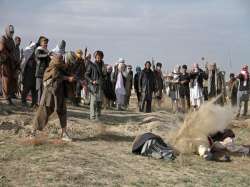Pakistan poses three times the terror risk to humanity than Syria, says report
Regarding the terror outfits operating in Pakistan, the report states that majority of these organisations are based in Khyber Pakhtunkhwa, Quetta, Pakistan Occupied Kashmir and Sindh.

Pakistan continues to remain a breeding ground and supporter of global terrorism and poses three times the terror risk to humanity than Syria, suggests a report by the Oxford University and Strategic Forensic Group (SFG).
The report titled 'Humanity at Risk-Global Terror Threat Indicant (GTTI) states that while the Afghan Taliban and Lashkar-e-Taiba (LeT) pose the maximum threat to international security, Pakistan tops the list of countries with the highest number of terrorist bases and safe havens.
"The rise of competitive extremism of all shades, misuse of weapons of mass destruction and economic disruptions can undermine human progress or even survival in the period from now until 2030. They are all interlinked with terrorism," news agency ANI quoted the report.
The SFG analysed over 200 groups actively involved in committing acts of terror in the first half decade of the 21st century. During that period, the groups motivated by their own interpretation of ideology accounted for only a fourth of almost 200 terror groups around the world.
Among these, ISIS has attracted much of media space in the last five years. But with swift rise and fall of ISIS, the Al-Qaeda remains the most resilient network. Until 2011, it was led by Osama bin Laden but now his son, Hamza bin Osama bin Laden has emerged, as what sections of the media describe, as the "new crown prince of terror".
The most significant factor influencing the future of terror groups would be the support they get from states, intelligence agencies and criminal networks.
The report has also given comprehensive details about global terror outfits operating from Afghanistan, Libya, Syria, Yemen and other countries who have linkages with each other.
Regarding the terror outfits operating in Pakistan, the report states that majority of these organisations are based in Khyber Pakhtunkhwa, Quetta, Pakistan Occupied Kashmir and Sindh.